Benefits Of Zinc: 18 Key Benefits For Immunity, Heart And More
Boost your body's protective power by getting your daily dose of this micronutrient.
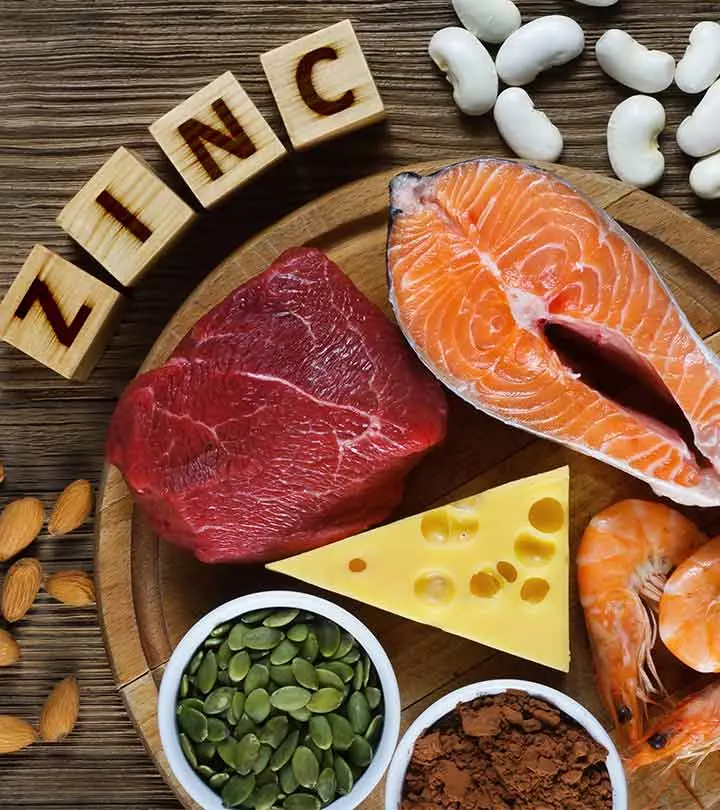
Image: Shutterstock
The benefits of zinc go beyond boosting immunity and keeping the common cold at bay. In addition to its role in keeping the body’s immune system strong and preventing infection, this trace mineral is important for a multitude of functions, including energy production, alertness, mood, and healthy brain function. It also plays a central role in hormone production, digestion, neuroprotection, and healing processes in the brain and body. And there’s more – but you’ll need to read on to learn all the amazing benefits of this remarkable health-promoting and healing mineral.
 Know Your Ingredient: Zinc
Know Your Ingredient: ZincWhat Is It?
A trace mineral required by the body in small quantities to carry out vital chemical reactions.
What Are Its Benefits?
Improves immunity, facilitates wound healing, controls diabetes, protects heart muscles, strengthens bones, boosts brain health, and helps fights cancer.
Who Can Consume It?
Considered safe for consumption in general.
How Often?
Zinc-rich foods can be a part of one’s daily diet.
Caution
Consuming zinc supplements on an empty stomach may cause nausea.
In This Article
What Does Zinc Do To Your Body?
Zinc is found in cells throughout the body. It strengthens your immunity and even contributes to the production of proteins and DNA. It also helps in wound healing.
Zinc is also present in all the body tissues and is imperative for healthy cell division. It has antioxidant benefits too – the mineral fights free radical damage and can even slow down aging. That’s about zinc in a nutshell. For more detailed information on the benefits, keep reading.
Key Takeaways
- Zinc may reduce oxidative stress in the body and support the immune system.
- The antioxidant properties of zinc can help protect the heart and strengthen heart muscles.
- Zinc is essential to maintain bone health and prevent bone loss in the body.
- It is also known for supporting the digestive system and preventing common stomach conditions, such as diarrhea.

What Functions Does Zinc Have In Your Body?
Zinc is found in virtually all of the body’s 30-100 trillion cells and plays an important role in over 100 enzyme systems in the human body. Along with its companion nutrients, such as magnesium and B-vitamins, it is required for healthy cell division and the formation of new cells. It’s also an important antioxidant mineral that is needed for the proper function of the powerful antioxidant enzyme, Cu/Zn superoxide dismutase (SOD), which soaks up highly reactive, free radicals before they harm delicate cellular components. Though, for this anti-aging enzyme to work properly, it needs adequate levels of both copper and zinc – with a deficiency of either element resulting in impaired function of this important, protective enzyme system.
That’s just the beginning. For more information on the benefits, keep reading.
What Are The Benefits Of Zinc?
1. Builds Immunity

Zinc plays a key role in your body’s immunity to bacteria, viruses, and fungi. In studies conducted on both young adults and the elderly, zinc supplementation was found to decrease oxidative stress and halt the generation of inflammatory cytokines (1). Zinc deficiency weakens the immune system in both humans and animals, increasing a person’s susceptibility to colds and infections (2).
Due to its inhibitory effect on viruses, the mineral works miraculously well in preventing and treating the common cold. Though you want to make sure you get a form of zinc that produces lots of zinc ions (Zn2+) when consumed. The reason for this is, it’s the zinc ions that inhibit viral replication by binding to the viral RNA. The form of zinc that produces the most ions is zinc acetate with zinc sulfate and zinc gluconate (commonly used in cold formulas) producing lesser amounts, but coming in a close second.
In addition to its immune strengthening effects, zinc also promotes faster wound healing as well. And according to the World Health Organization, zinc supplementation might also help boost respiratory health in children (3). This makes a lot of sense given its important antioxidant and anti-inflammatory effects in the body, but you don’t want to overdo it. All you need is between 15-30 mg per day for a strong immune system and optimal health.
Too much zinc (> 30 mg per day) can potentially low copper stores in the body, which is another trace element important for a strong immune system. So, it’s recommended to have your copper level periodically tested if you’re taking a daily zinc supplement. Many multivitamins have zinc balanced with a small amount of copper to prevent a copper deficiency, but if you eat a lot of foods rich in copper, such as almonds or almond butter, other nuts, seeds, chocolate, legumes, avocados, whole grains, and seafood, you don’t need to worry about your copper and should be fine as long as you don’t overdo the zinc.
It’s a good idea to have your copper level tested if you’re taking a daily zinc supplement that exceeds the RDA of 15 mg and is experiencing unusual fatigue, muscle weakness, low thyroid, or skin issues, which may signify a copper deficiency. Remember, everything functions in balance.
 Trivia
Trivia2. Helps Combat Cancer
An American study speaks of how zinc can aid cancer treatment. The mineral can regulate the cell proliferationi The process of multiplication or reproduction of cells by cell division that aids the rapid growth of new parts. process and has an anti-cancer defense mechanism (4). Other studies have suggested that zinc can halt the proliferation of esophageal cancer cells. Zinc and other nutrient deficiencies (e.g., magnesium, selenium, vitamin D) are common in cancer patients, suggesting a link between these nutrients and the possible prevention of various forms of cancer (5).
| Did You Know? Zinc is the 24th most common element in the planet’s crust. It makes up 0.0075% of the Earth’s crust. |
3. Aids Diabetes Treatment
Zinc supplementation can also have a beneficial effect on glycemic control (6). As per other reports, women with prediabetesi A condition in which blood sugar becomes higher than normal blood sugar level but not high enough to be type 2 diabetes. were found to be deficient in zinc and other elements (e.g. vitamin D).
Zinc has also been found to prevent amylin (a protein) from forming clumps in the body, which can contribute to diabetes and other chronic ailments The mineral has specific functions in the biochemistry of insulin, which plays a central role in diabetes (7). Zinc is also required for the production of pancreatic enzymes, which are digestive enzymes essential for the proper breakdown and utilization of proteins, fats, and carbohydrates in the foods we eat.
4. Protects The Heart
As an antioxidant mineral, studies have shown that zinc can protect the heart muscles against oxidative stress that might otherwise harm the heart in the long run. It strengthens the heart – along with three other important antioxidant minerals, magnesium, copper, and selenium – and helps the heart deal with oxidative stress and other related issues (8).
Zinc can also regulate the heartbeat. Research has shown that patients with congestive heart failure often have zinc deficiency (9). The mineral also regulates the way calcium travels through the heart. Other studies have revealed that sufficient zinc intake could help prevent angina pectoris (severe pain in the chest) (10).
Like other mineral deficiencies, zinc deficiency can also lead to high blood pressure, which might eventually lead to cardiac issues.
5. Might Aid Weight Loss
Recent studies have revealed that obese individuals tend to have low levels of zinc. This means that boosting dietary zinc could have a positive effect on energy metabolism and weight loss, though there are other factors involved as well.
Obese patients on zinc supplementation had improved body mass indices, loss in weight, and even showed improvements in triglyceride levels (11). This could be because zinc plays a strong role in energy metabolism, and a zinc deficiency reduces the body’s production of ATP – the body’s energy currency that fuels all body processes.
A chronic zinc deficiency has been shown to redirect the body’s energy reserves to fat storage rather than fat-burning. Another reason to make sure you’re getting enough of this versatile mineral.
6. Can Boost Brain Health
Several studies have spoken about the beneficial effects of zinc on brain health
. One such study talks about how the mineral has been successfully employed to treat certain types of schizophreniai A mental disorder characterized by behavior and thoughts that are out of sync with one’s immediate reality. (12).
Zinc also plays a strong role in neuroprotection (i.e. protecting brain cells), promoting healing processes in the brain and nervous system, and modulating the body’s response to stress. In fact, the highest amount of zinc in our bodies is found in our brains (in the hippocampus).
In one rat study, Zinc supplementation was also found to enhance cognitive function, learning, and memory (13).
7. Strengthens The Bones
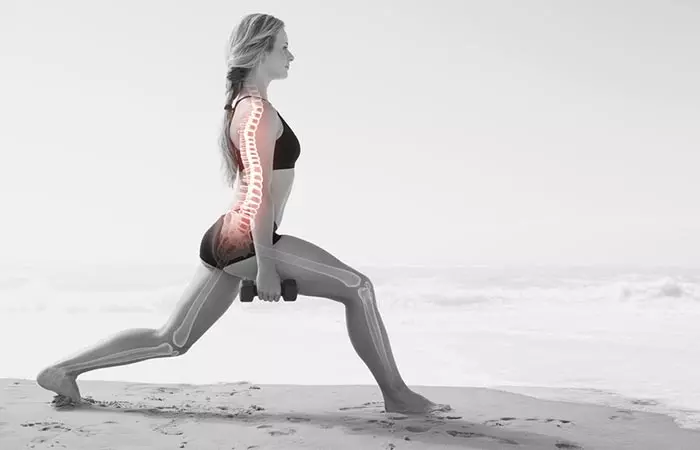
Zinc is an important mineral for the health of our teeth and bones. Along with other bone nutrients such as magnesium, vitamin D, K2, and boron – zinc was found to have a beneficial effect on preventing and reducing bone loss. The mineral can be used in various forms to prevent and even treat osteoporosisi A disease that makes bones brittle and weak which can easily cause bones to break or fracture due to low bone mineral density. (14).
Zinc deficiency has been linked to deterioration of bone metabolism and was found to stimulate bone formation and mineralization, two important aspects of bone health. This is partly due to its important role in protein synthesis.
Zinc has also been observed to be an important trace element for oral health. The mineral has antibacterial properties and is effective against oral health issues like gingivitisi A form of gum disease that causes inflamed gum at the base of teeth due to poor oral hygiene and may lead to teeth loss. , dental caries, and periodontitisi A serious gum infection that can cause tooth loss, damage to the jawbone, and other health complications involving the heart and the lungs. (15).
8. Improve Vision
The retina is known to contain a high concentration of zinc. This mineral works with vitamin A in the formation of melanin, which is a pigment that protects the eye. Some evidence also suggests that zinc supplementation can help prevent age-related macular degeneration (16). However, current evidence on zinc intake for the prevention of age-related macular degeneration is inconclusive.
Poor night vision and cloudy cataracts have also been linked to zinc deficiency (17).
Rodrigo Nossaki, a YouTuber, overcame his visual impairment by incorporating zinc-rich foods and a zinc supplement into their diet. In his video, he mentions the inability to see in the dark, and how, even after visiting one of the best doctors in his city, his problem persisted. As he had all but given up on trying to solve the issue, he was surprised to find on the internet that zinc deficiency can lead to an inability to see in the dark. “Imagine my surprise. I thought, I have nothing to lose so I started to eat foods rich in zinc and I started to take a supplement.” Upon following this routine, Rodrigo found success, “My night vision was back, I was cured. Magic (i)!”
9. Promotes Digestive Health
It has been found that people with zinc deficiency often experience digestive disturbances, the most common of them being difficulty in digesting protein. This is because zinc serves an important role in regulating gastric acidity as well as producing digestive enzymes in the small intestine.
The mineral can also help prevent several gastrointestinal issues. This stems from the fact that zinc can enhance the health and integrity of the gastrointestinal (GI) epithelial barrier function, which can help GI issues (18). Digestive issues, including diarrhea, are some of the common signs of zinc deficiency.
Zinc deficiency can affect the gut microbial diversity as well. Your gut contains a number of different microorganisms, like good bacteria, that should be evenly spread. Decreased diversity is a sign of an unhealthy microbiome that may lead to chronic health issues (19). The gut microbiome controls digestion and benefits your immune system. However, a zinc deficiency can lead to an unhealthy dynamic variation in gut microbial composition and function in animals (20). According to a study, the supplementation of zinc and iron biofortified foods can improve gut health without increasing the colonization of bad bacteria that cause diseases (21). Thus, zinc plays a vital role in improving gut health.
 Trivia
Trivia10. Can Be Helpful During Pregnancy
Research has shown that low birth weight infants whose mothers were on zinc supplementation during pregnancy had a reduced risk of diarrhea and dysentery.
According to the World Health Organization, zinc deficiency might lead to intra-uterine deficiency during pregnancy. Maternal zinc deficiency might also compromise the health of the infant and lead to poor birth outcomes.
Population studies show that over 80% of the world’s pregnant women are deficient in zinc (22). Along with other nutrients such as vitamins C, D, and folate, zinc was also found to promote favorable outcomes during pregnancy as well as lactation.
Zinc is one of the most important minerals for male fertility (23). Low levels of zinc have also been linked to melasma (dark skin coloration that occurs especially during pregnancy) (24).
11. Might Relieve PMS Symptoms

When taken with extra magnesium (400-600 mg/d) and vitamin B6 (5-20 mg/d), zinc was found to relieve cramping and pain related to PMS (25). This might be because it improves blood flow to the uterus and also reduces inflammation.
When taking vitamin B6, It’s important to remember that B-vitamins work best when taken together, so if you do try a little extra magnesium and B6 – it’s good to add a high-quality multivitamin that has the full-spectrum of B-complex vitamins. Just make sure it’s free of synthetic food colors (e.g. FD&C Red 40, Yellow 6) and unhealthy preservatives such as BHT, BHA, and TBHQ.
12. Boosts Men’s Sexual Health
Zinc enables the male body to produce testosterone, which is one reason a deficiency of zinc can also lead to erectile dysfunction. Studies have shown that zinc supplementation can increase testosterone, thereby treating male sexual problems – erectile dysfunction being one of them (26).
Consuming 15-30 milligrams of zinc per day is sufficient in preventing and correcting a zinc deficiency in most men, and if zinc is deficient, a well-absorbed supplement such as zinc bound to glycinate, citrate, or monomethionine will increase a man’s testosterone level.
Another study showed that one’s sense of smell could be important for libido – and that zinc deficiency can decrease the sense of smell (27). This pretty much means that low levels of zinc indirectly decrease libido. Adequate zinc levels were also found to support prostate health.
13. Can Fight Chronic Fatigue
One Belgian study states how zinc supplements can help treat chronic fatigue syndrome (CFS). CFS is accompanied by increased oxidative stress – and since zinc fights oxidative stress, it can help fight the condition (28). As a result, zinc can also increase energy levels.
14. Is Beneficial For Bodybuilding
Though there is less information on this, some reliable sources say that zinc can help with muscle growth and development, as well as muscle repair. It can also aid protein synthesis – which can be beneficial in bodybuilding.
 Did You Know?
Did You Know?15. Detoxifies The Body
Zinc can help in detoxification by enhancing the function of the liver and kidneys. Zinc deficiency is often linked to liver cirrhosis, and adequate levels of the mineral can prevent oxidative liver damage (29). The mineral is also helpful in preventing kidney disease, protecting against cadmium and mercury exposure, and keeping the organs functioning perfectly (30).
16. Treats Tinnitus
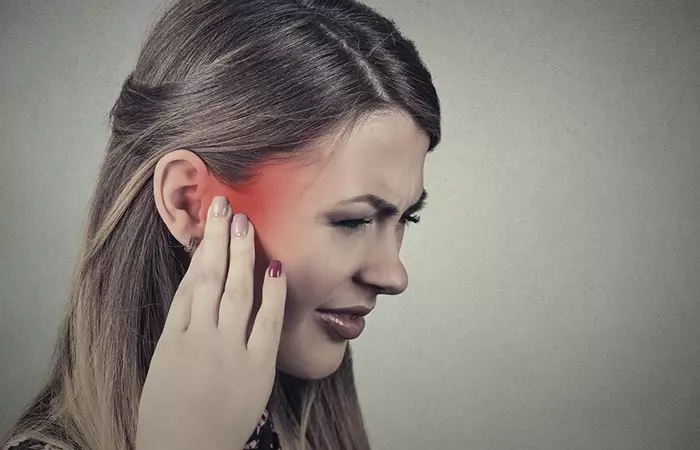
Studies show that patients with tinnitus have low levels of zinc. Though we need more research in this area, zinc can be a potential treatment for tinnitus (31).
17. Treats Acne
Reports suggest that acne patients are usually low in zinc. The mineral is known to kill acne-causing bacteria. It also fights inflammation together with other important anti-inflammatory, antioxidants such as vitamins A, C, E, and selenium – which have all been found to be low in low who suffer from acne and other skin problems.
With respect to vitamin A, you want to look for the animal form of this nutrient (retinyl acetate or palmitate, retinol, or derived from cod liver oil), which is more potent and active in the body than plant-form vitamin A – otherwise known as beta-carotene. Zinc and vitamin A function as companion nutrients in the body and play a critical role in cellular growth, repair, and healing of the skin and all tissues. Hence it aids your skin health.
A good starting dose for zinc is 15-30 mg per day, coupled with 10,000 IU of animal-form, vitamin A per day, which you can take short-term for 2-3 months, while you’re replenishing your vitamin A stores. After 3 months, it’s recommended to reduce the dose of vitamin A to 2-3 times per week, which will give your body an extra 20-30,000 IU of vitamin A to prevent infection, reduce inflammation, and assist in the healing process. Vitamin A is very safe, but like all fat-soluble vitamins, it can accumulate, so it’s good to take occasional breaks in your supplementation once you restore your body to a healthy level, which can be confirmed with a simple blood test.
Zinc also reduces the activation of keratinocytes – which are cells that produce keratin (a protein that binds the cells together). Excess keratin can lead to blocked pores and acne.
These properties of zinc can make your skin clear. It might also help with healing scars and preventing herpes outbreaks. You can get creams and ointments from the pharmacy with zinc as the primary constituent. Check with your doctor before using them, though. With the aforementioned antioxidants above, the anti-aging benefits of zinc can also help prevent wrinkles and age spots.
18. Can Boost Hair Growth
Zinc helps you maintain healthy hair. A deficiency in the mineral can lead to the deterioration of the protein structure that makes up the hair follicles. Making sure you get adequate zinc can help in this aspect.
Well, we are done with the benefits. But to enjoy these benefits, one must take in adequate amounts of zinc.
What Is The Recommended Daily Allowance Of Zinc?
| Age | Male | Female | Pregnancy | Lactation |
| 0–6 months | 2 mg* | 2 mg* | – | – |
| 7–12 months | 3 mg | 3 mg | – | – |
| 1–3 years | 3 mg | 3 mg | – | – |
| 4–8 years | 5 mg | 5 mg | – | – |
| 9–13 years | 8 mg | 8 mg | – | – |
| 14–18 years | 11 mg | 9 mg | 12 mg | 13 mg |
| 19+ years | 11 mg | 8 mg | 11 mg | 12 mg |
| * Adequate Intake (AI) | ||||
In case you don’t meet the requirement, you can become zinc deficient. But how do you know if you are deficient in zinc? Well, these symptoms can tell you.
What Are The Symptoms Of Zinc Deficiency?
The most common symptoms include (32):
– Changes in appetite
– Unexplained weight gain or loss
– Hair loss
– Chronic fatigue syndrome
– Infertility
– Digestive problems (most commonly, diarrhea)
– Low immunity
– Poor concentration and memory
– Slow wound healing
– Worsened PMS symptoms
How can you avoid these symptoms and get adequate levels of zinc? Simple – consume zinc-rich foods and other minerals as well.
What Are The Foods Rich In Zinc?
Here are some of the richest sources of zinc. Do keep in mind that the absorption rate of zinc is better in animal-based foods than plant foods.
- Lamb (3 ounces contain 2.9 milligrams of zinc, which meets 35% DV)
- Grass-fed beef (3 ounces contain 2.6 milligrams of zinc, which meets 32% DV)
- Garbanzo beans (1 cup cooked chickpeas contains 2.5 milligrams of zinc, which meets 31% DV)
- Pumpkin seeds (¼ cup contains 1.6 milligrams of zinc, which meets 20% DV)
- Chicken and turkey (3 ounces of each contain 1 milligram of zinc, which meets 12.5% DV)
- Eggs (1 large egg contains 0.6 milligrams of zinc, which meets 7% DV)
- Mushrooms (1 cup contains 0.6 milligrams of zinc, which meets 7% DV)
- Salmon (3 ounces contain 0.5 milligrams of zinc, which meets 6% DV)
- Cocoa powder (1 tablespoon contains 0.3 milligrams of zinc, which meets 3% DV)
If you find it hard to meet your daily zinc needs through food alone, you might also want to look at supplements. Zinc is found in most multivitamin and multimineral supplements. They often contain zinc in the form of zinc sulfate, zinc acetate, or zinc gluconate, though the best-absorbed forms of zinc are the glycinate, citrate, and monomethionine forms of the mineral, which are found in higher quality supplements. However, it is always important to use zinc supplements wisely. Always check with a healthcare provider before starting them to ensure you actually need them and are getting the right dosage.
All good. But wait – don’t go overboard.
What Are The Side Effects Of Excess Zinc?

- Issues During Pregnancy And Breastfeeding
Excess zinc can cause complications during pregnancy and breastfeeding..
- Other Side Effects
Excess zinc supplementation can also cause nauseai An uneasy feeling in the stomach that causes an urge to vomit but does not always lead to vomiting. , vomiting, stomach pains, loss of appetite, headaches, and diarrhea.
Infographic: 8 Health Benefits Of Zinc
Zinc is an important mineral that possesses several health benefits. From boosting immunity to improving the skin, zinc is a remarkable healing mineral. The deficiency of zinc can cause serious medical issues.
Check out the infographic and explore the top 8 benefits of zinc for your health.
Some thing wrong with infographic shortcode. please verify shortcode syntaxZinc benefits you in multiple ways. It is present in lamb, grass-fed beef, garbanzo beans, pumpkin seeds, chicken, turkey, and eggs. Zinc builds immunity, reduces cancer risk, aids in diabetes treatment, and promotes cardiovascular, bone, brain, vision, digestive, sexual, and hair health. It also manages acne and tinnitus. Chronic fatigue can also be managed with zinc. However, excess zinc intake may trigger side effects like vomiting, nausea, headaches, diarrhea, and loss of appetite. Hence, caution is highly advised.
Frequently Asked Questions
What happens if you take zinc supplements on an empty stomach?
You might feel nauseated and also have an upset stomach. Taking supplements in between meals with water can help best in the absorption of zinc.
What is the difference between zinc and zinc picolinate?
Zinc is not easily absorbed by itself. The absorption can be improved when it is attached to another substance (picolinic acid, in this case) that is absorbed well. The resultant combination is zinc picolinate. Zinc is just a mineral.
Which forms of zinc are best absorbed?
These are zinc picolinate, zinc citrate, zinc acetate, zinc monomethionine, and zinc glycerate. These are the forms of elemental zinc. From foods, zinc from animal-based sources is best absorbed.
Does zinc help you sleep?
Yes. According to research, zinc can help improve sleep quality by exerting a regulatory effect on the central nervous system (CNS) (33).
Does zinc make you hungry?
Zinc has been shown to increase appetite and improve food intake in people with short-term zinc deficiency. Additionally, there is some evidence to suggest a link between zinc deficiency and anorexia, which may potentially be reversed through zinc supplementation (34).
Does zinc cause bloating?
It is unlikely for dietary or supplementary zinc to cause bloating or gas if consumed within the recommended daily allowance.
Is zinc good for leg cramps?
Zinc supplementation has been shown to reduce and, in some cases, resolve muscle cramps in patients with cirrhosis (35). Therefore, it may be helpful for relieving leg cramps in the general populace as well.
Is zinc good for menopause?
Zinc has been shown to be helpful for pre-menopausal women as it can help regulate mood and behavior. But more studies are needed to understand its effect on menopausal women (36).
Illustration: Benefits Of Zinc, Its Dosage, And Side Effects
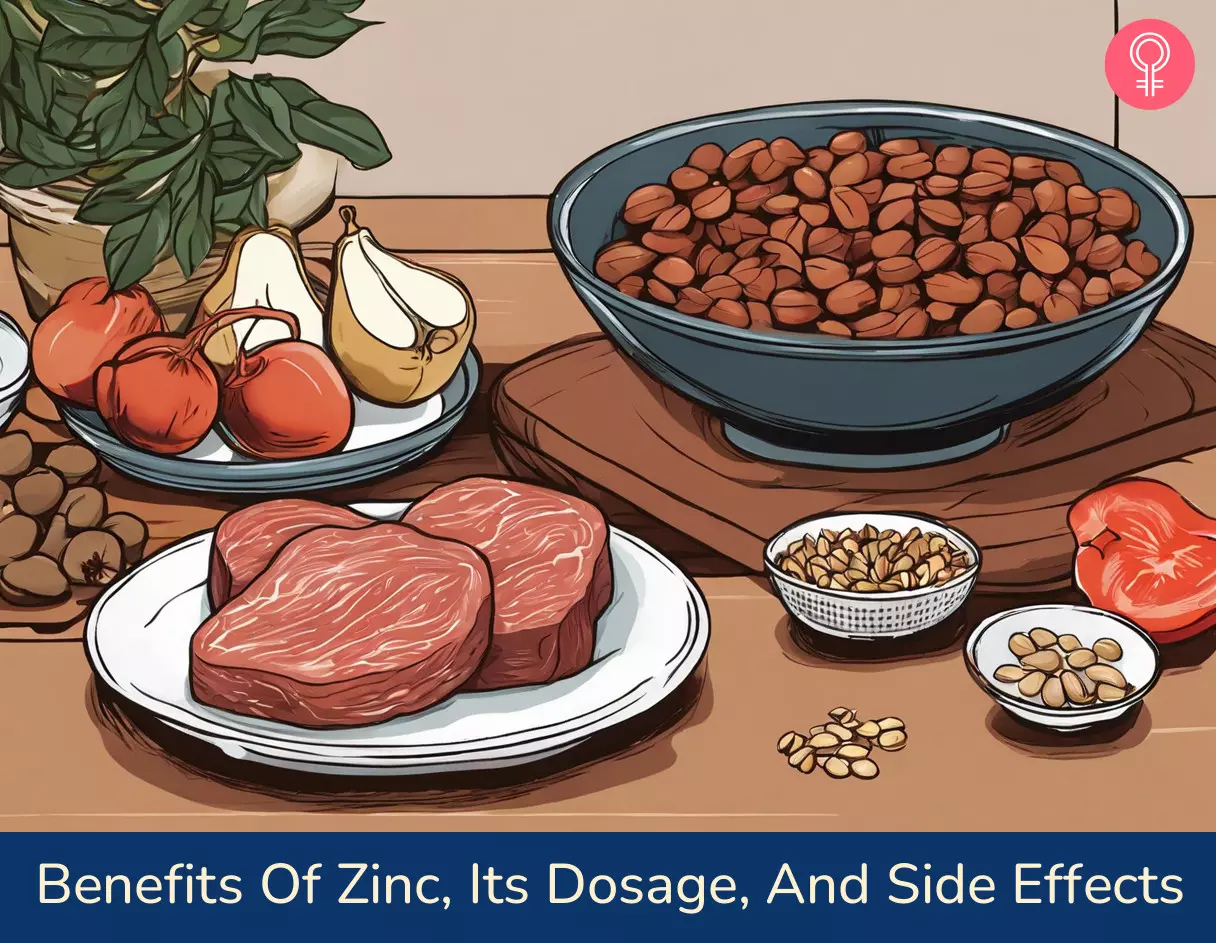
Image: Stable Diffusion/StyleCraze Design Team
Personal Experience: Source
StyleCraze's articles are interwoven with authentic personal narratives that provide depth and resonance to our content. Below are the sources of the personal accounts referenced in this article.
i. The Zinc Experimenthttps://www.youtube.com/watch?v=mxUf9p0O2O8
References
Articles on StyleCraze are backed by verified information from peer-reviewed and academic research papers, reputed organizations, research institutions, and medical associations to ensure accuracy and relevance. Read our editorial policy to learn more.
- Zinc in Human Health: Effect of Zinc on Immune Cells
https://www.ncbi.nlm.nih.gov/pmc/articles/PMC2277319/ - Zinc and immune function: the biological basis of altered resistance to infection
https://pubmed.ncbi.nlm.nih.gov/9701160/ - Zinc supplementation for the prevention of pneumonia in children aged 2 months to 59 months
https://www.ncbi.nlm.nih.gov/pmc/articles/PMC6463931/ - Role of Zinc in Immune System and Anti-Cancer Defense Mechanisms
https://www.ncbi.nlm.nih.gov/pmc/articles/PMC6835436/ - Zinc in cancer prevention
https://pubmed.ncbi.nlm.nih.gov/20155630/ - Effects of zinc supplementation on diabetes mellitus: a systematic review and meta-analysis
https://dmsjournal.biomedcentral.com/articles/10.1186/1758-5996-4-13 - Zinc in Pancreatic Islet Biology, Insulin Sensitivity, and Diabetes
https://www.ncbi.nlm.nih.gov/pmc/articles/PMC5383135/ - Zinc and Oxidative Stress: Current Mechanisms
https://pubmed.ncbi.nlm.nih.gov/28353636/ - Zinc Deficiency as a Reversible Cause of Heart Failure
https://www.ncbi.nlm.nih.gov/pmc/articles/PMC7328074/ - High-dose zinc to terminate angina pectoris: a review and hypothesis for action by ICAM inhibition
https://pubmed.ncbi.nlm.nih.gov/16084666/ - Effects of zinc supplementation on obesity: study protocol for a randomized controlled clinical trial
https://www.ncbi.nlm.nih.gov/pmc/articles/PMC5097376/ - Zinc, the brain and behavior
https://pubmed.ncbi.nlm.nih.gov/7082716/ - Supplementation with Zinc in Rats Enhances Memory and Reverses an Age-Dependent Increase in Plasma Copper
https://www.ncbi.nlm.nih.gov/pmc/articles/PMC5584546/ - Role of nutritional zinc in the prevention of osteoporosis
https://pubmed.ncbi.nlm.nih.gov/20035439/ - Zinc: A precious trace element for oral health care?
https://pubmed.ncbi.nlm.nih.gov/27524540/ - A systematic review on zinc for the prevention and treatment of age-related macular degeneration
https://pubmed.ncbi.nlm.nih.gov/23652490/ - Diet and Nutrition
https://www.aoa.org/healthy-eyes/caring-for-your-eyes/diet-and-nutrition?sso=y - Zinc and gastrointestinal disease
https://www.ncbi.nlm.nih.gov/pmc/articles/PMC4231515/ - Role of the gut microbiota in nutrition and health
https://www.bmj.com/content/361/bmj.k2179 - Alteration in Gut Microbiota Associated with Zinc Deficiency in School-Age Children
https://pubmed.ncbi.nlm.nih.gov/35889856/ - Effects of Iron and Zinc Biofortified Foods on Gut Microbiota In Vivo ( Gallus gallus): A Systematic Review
https://pubmed.ncbi.nlm.nih.gov/33435398/ - Zinc Deficiency in Pregnancy and Fetal Outcome
https://www.researchgate.net/publication/7284933_Zinc_Deficiency_in_Pregnancy_and_Fetal_Outcome - Zinc is an Essential Element for Male Fertility: A Review of Zn Roles in Men’s Health, Germination, Sperm Quality, and Fertilization
https://www.ncbi.nlm.nih.gov/pmc/articles/PMC6010824/ - Evaluation of the serum zinc level in adult patients with melasma: Is there a relationship with serum zinc deficiency and melasma?
https://pubmed.ncbi.nlm.nih.gov/29131489/ - Zinc treatment prevents dysmenorrhea
https://pubmed.ncbi.nlm.nih.gov/17289285/ - Zinc status and serum testosterone levels of healthy adults
https://pubmed.ncbi.nlm.nih.gov/8875519/ - Zinc and the special senses
https://pubmed.ncbi.nlm.nih.gov/6349457/ - Lower serum zinc in Chronic Fatigue Syndrome (CFS): relationships to immune dysfunctions and relevance for the oxidative stress status in CFS
https://pubmed.ncbi.nlm.nih.gov/16338007/ - Zinc and liver disease
https://pubmed.ncbi.nlm.nih.gov/22307488/ - Zinc in kidney disease
https://pubmed.ncbi.nlm.nih.gov/2674256/ - The role of zinc in the treatment of tinnitus
https://pubmed.ncbi.nlm.nih.gov/12544035/ - Zinc Deficiency
https://www.ncbi.nlm.nih.gov/books/NBK493231/ - Dietary Zinc Acts as a Sleep Modulator
https://www.ncbi.nlm.nih.gov/pmc/articles/PMC5713303/ - Zinc as an appetite stimulator – the possible role of zinc in the progression of diseases such as cachexia and sarcopenia
https://pubmed.ncbi.nlm.nih.gov/21846317/ - Preliminary observation: oral zinc sulfate replacement is effective in treating muscle cramps in cirrhotic patients
https://pubmed.ncbi.nlm.nih.gov/10682870/ - Increasing Iron and Zinc in Pre-Menopausal Women and Its Effects on Mood and Cognition: A Systematic Review
https://www.ncbi.nlm.nih.gov/pmc/articles/PMC4245583/
Read full bio of Dr. Timothy M. Marshall
Read full bio of Ravi Teja Tadimalla
Read full bio of Arshiya Syeda
Read full bio of Sindhu Koganti








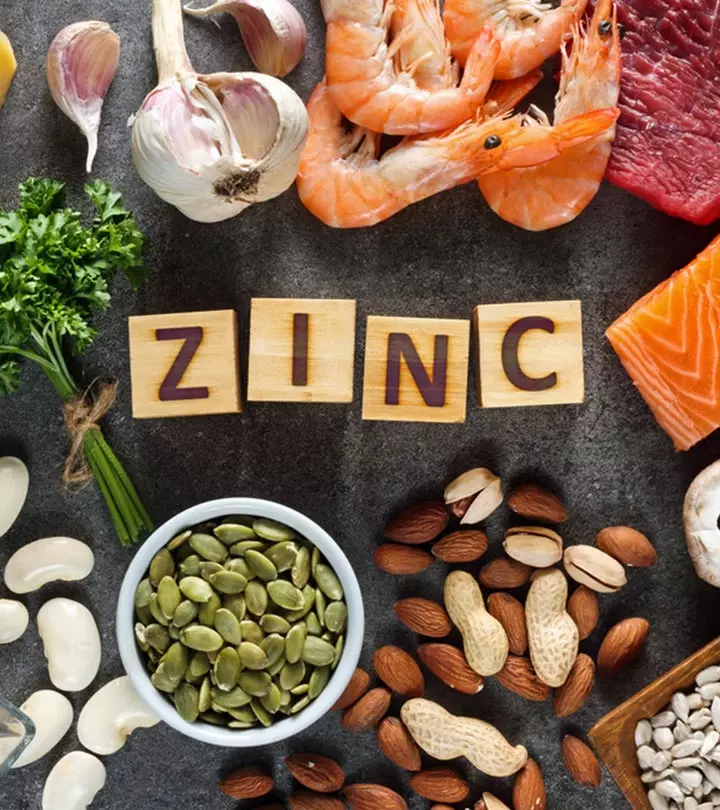


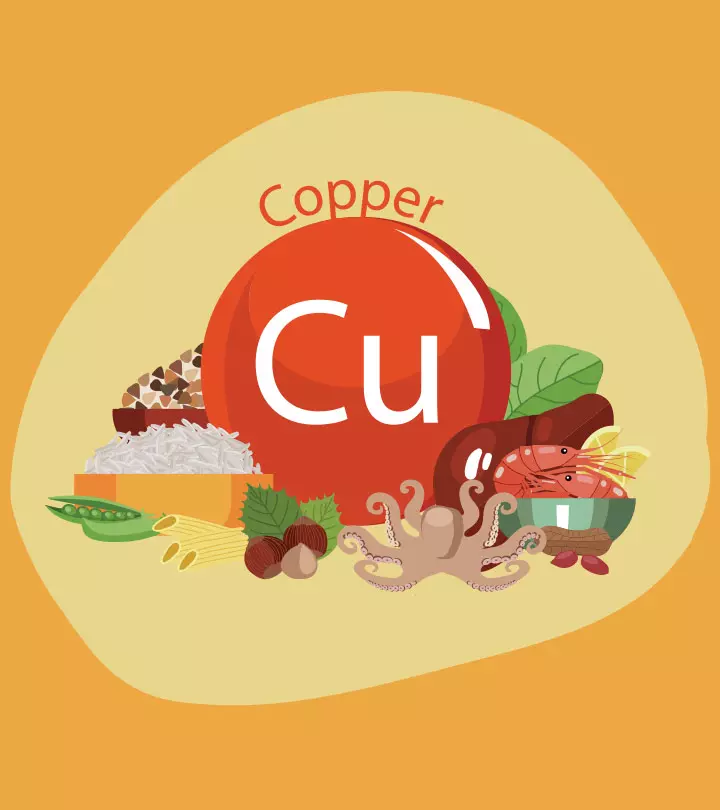
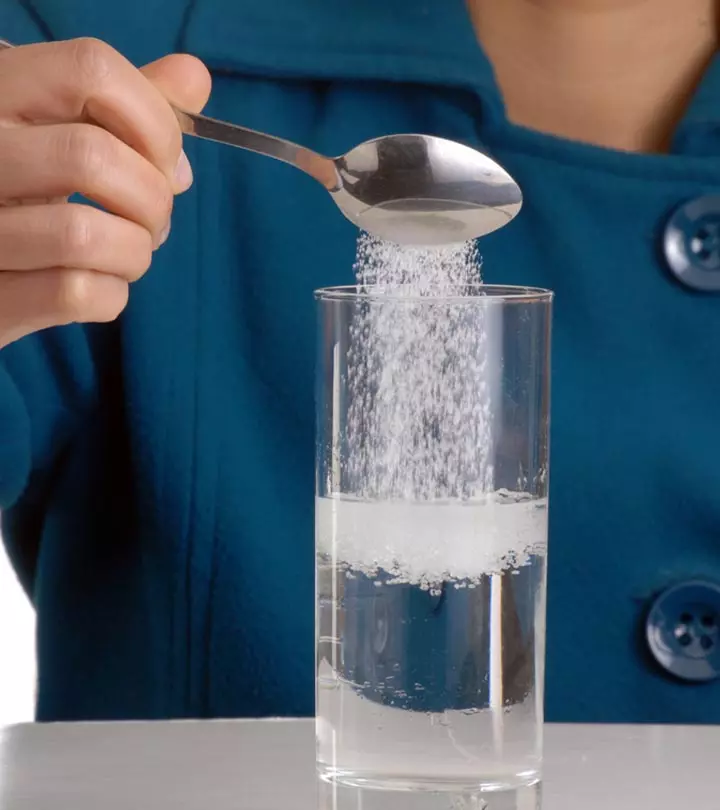


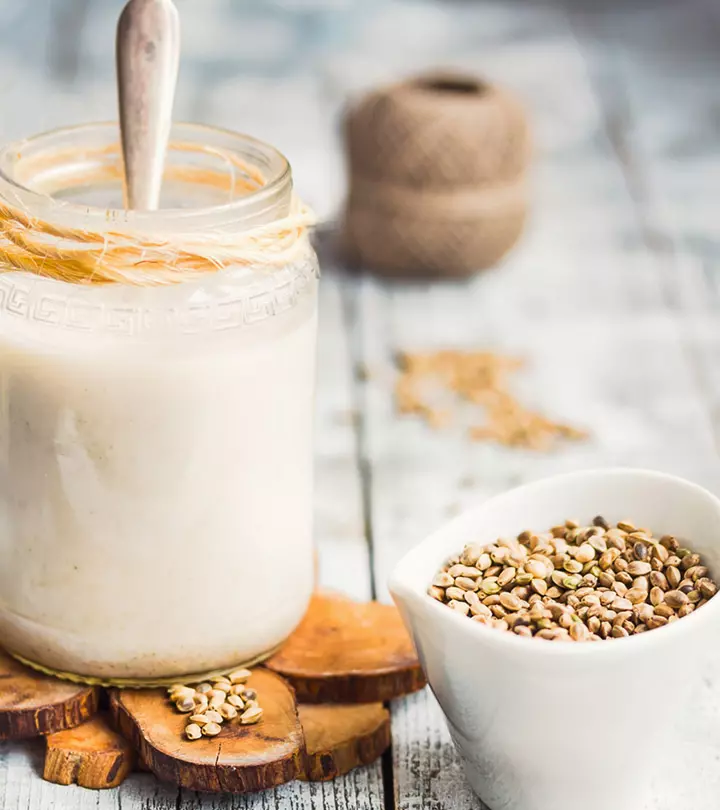
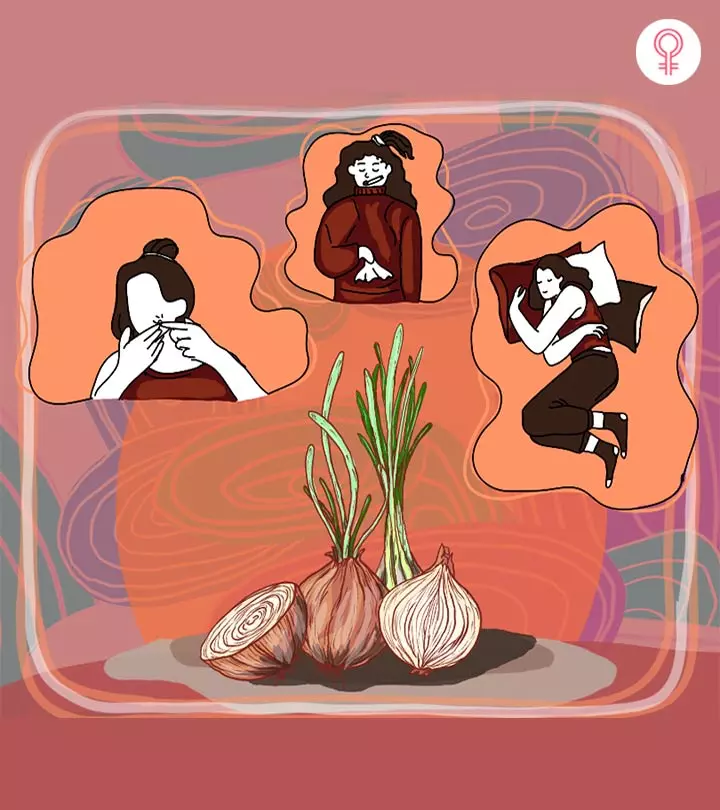




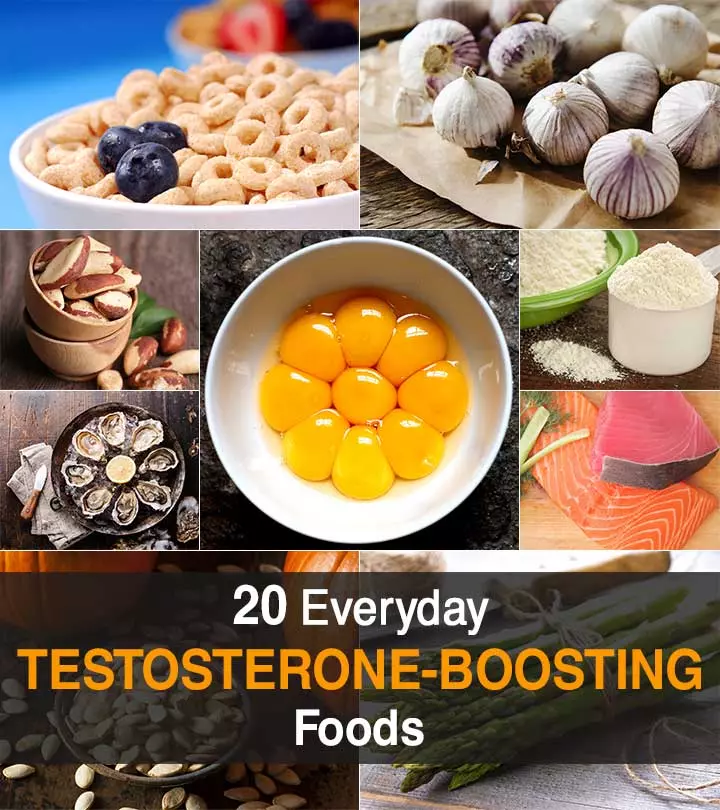

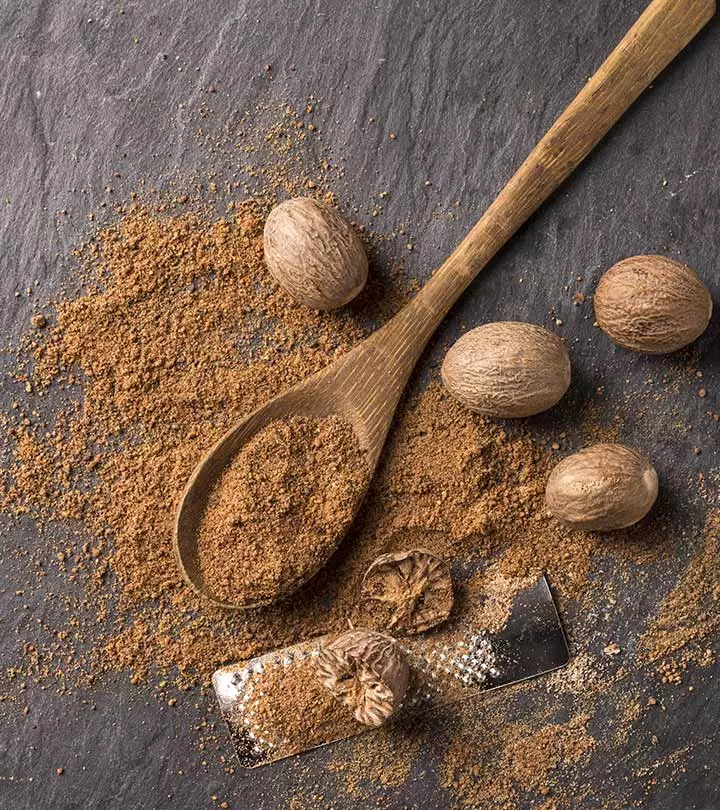
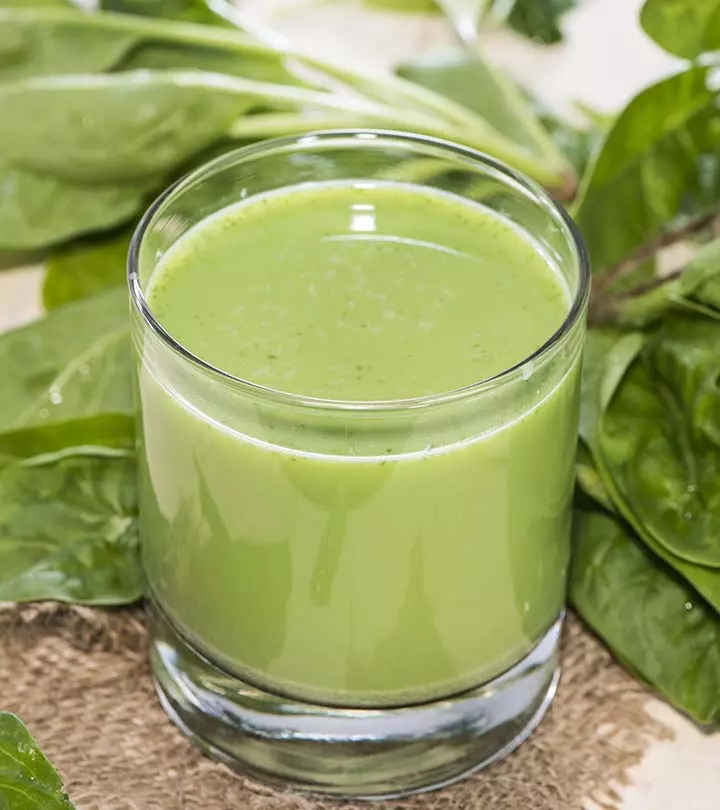


Community Experiences
Join the conversation and become a part of our empowering community! Share your stories, experiences, and insights to connect with other beauty, lifestyle, and health enthusiasts.